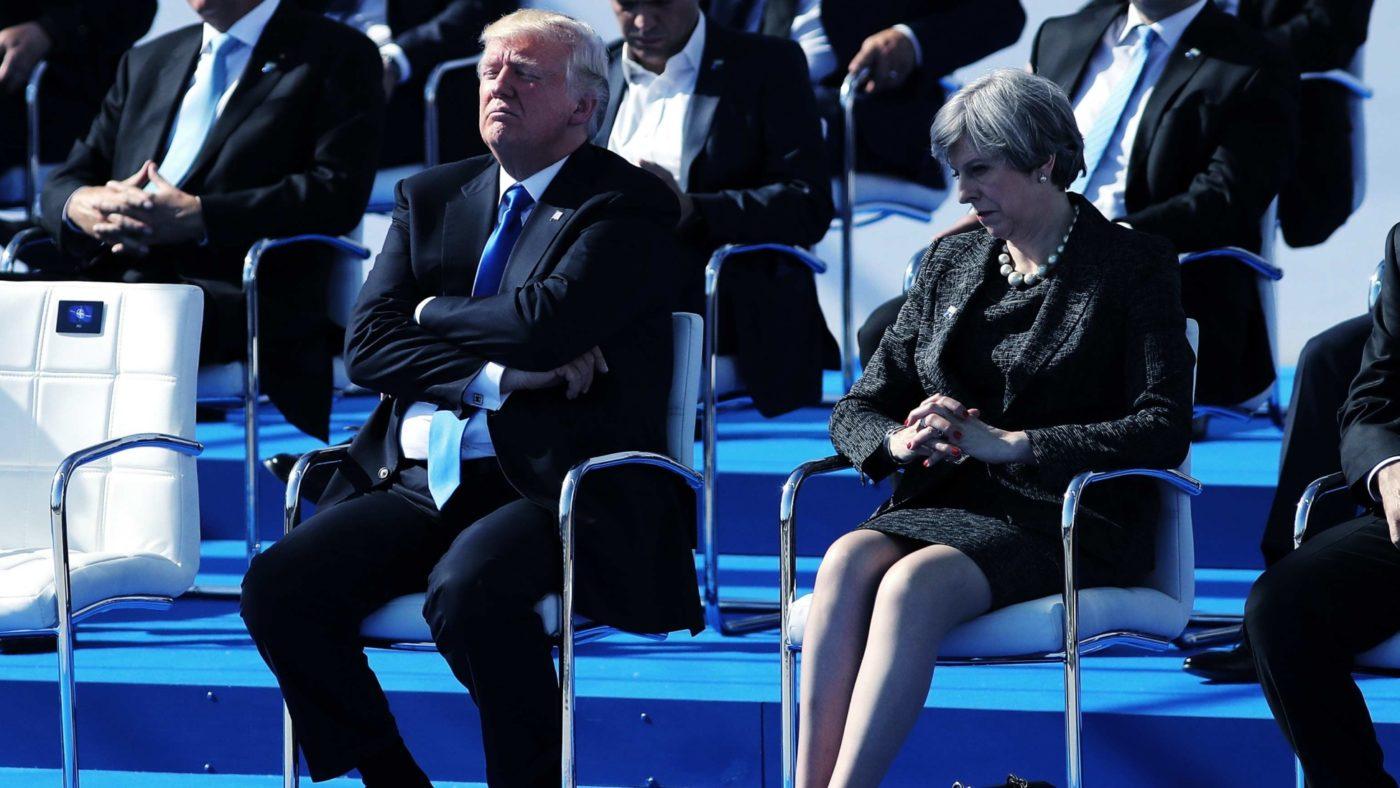Nato is not just about defence, any more than capitalism is just about making money. Donald Trump misunderstands both. His ruthless, zero-sum approach to business is mirrored in his foreign-policy stance, which emboldens America’s enemies and dismays its allies.
That is the upshot of his first foreign trip as President, in which he cosied up to Saudi Arabia and lambasted America’s European friends for their inadequate contribution to Nato.
In practice, so far, not much has changed. Thanks to Atlanticist stalwarts such as the defence secretary, James Mattis, the national security adviser, HR McMaster, and the commander of US forces in Europe, General Ben Hodges, Nato is in good shape.
The biggest weakness in the alliance’s territorial defence—the Baltic states—is being plugged. A British-led contingent has deployed in Estonia, with Canadian and German counterparts in Latvia and Lithuania respectively. A modest military commitment has already made it far less likely that Russia would try a sneak attack or other mischief-making. The Kremlin is turning its attention to softer targets (such as the political systems of the old Western democracies).
The bigger picture looks superficially encouraging too. Across the alliance, defence spending has stopped falling. In most countries it is inching up —though still only four of the alliance’s European members meet the self-imposed target of 2 per cent of GDP. For the record, they are Britain, Estonia, Poland and Greece.
For all the frustrations and short-comings of the seemingly endless war in Afghanistan, America’s European allies still send their sons and daughters to be killed and maimed in a cause that seems to many both distant and ill-judged. European allies have also pledged to support the anti-ISIS effort in Iraq and Syria.
And though anti-Americanism is rampant in European countries (and stoked by Mr Trump’s seeming disdain for a whole herd of cherished causes such as curbing greenhouse emissions or aid to poor countries), there is no sign of a change in the continent’s geopolitical outlook.
Emmanuel Macron is (albeit by French standards, and despite a bruising initial encounter with Mr Trump) an Atlanticist. Angela Merkel, now safely on course to win Germany’s election in the autumn, will have no truck with dreams of uncoupling Europe from the alliance with the United States. True, Russia is making alarming headway in Italy, and making startling mischief in the Western Balkans. But these are irritants, not earthquakes.
In practice, therefore, all European countries will continue — though in some cases reluctantly — to support Ukraine in its struggle against Russian aggression. The European Union will continue to promote energy security in the face of Russian exploitation of its monopoly power. It is even showing signs of getting to grips with Russian “information warfare”.
Yet the heart of the alliance is being hollowed out. The transatlantic relationship increasingly resembles a loveless marriage. The bills are paid (amid a lot of squabbling about who picks up which tab). The house and car are maintained. The kids are educated. There is food in the fridge. There are even regular trips abroad. But at least one side thinks privately that if not already married, they would be arranging things differently.
That is mostly, but not wholly, Mr Trump’s fault. The passage of time has worn away at the shared experiences which once fired Atlanticist spirits. Only people in their late 80s remember the Normandy landings of 1944 or the Berlin Airlift of 1948 — events which epitomise American bravery and sacrifice in liberating Europe and keeping it free.
The terrors of the Cold War are fading too: the fear that the Soviet empire might actually win, or that we might blow up the world with nuclear weapons. Even memories of the triumph of 1989-91, when the collapse of communism brought the ultimate prize for Atlanticists, of Europe whole and free, are confined to the over-40s. Instead, the millennial generation equates American leadership with failed, illegal wars and with a model of financial capitalism which nearly capsized the world economy.
The transatlantic marriage is not doomed. But it does need cherishing. Both sides need to make time for each other, to take account of foibles and preoccupations, sharing chores fairly and making sure that disputes are settled quickly and amicably.
None of that is Mr Trump’s forte. At the ceremony marking the opening of Nato’s gleaming new headquarters, he ostentatiously failed to commit America to the alliance’s collective-defence clause, Article 5 of the Atlantic Charter. That is the marital equivalent of forgetting both your wedding anniversary and your spouse’s birthday. His omission was all the more scandalous given that the headquarters features a monument to 9/11—the terrorist attack in which Nato invoked Article 5 in solidarity with the United States.
Instead, Mr Trump adopted a hectoring tone on the absent financial contributions, even arguing that past failures to meet 2 per cent should be counted as “debts”. It is easy to understand American impatience with stingy and feckless allies. But other approaches would work better—for example suggesting that senior jobs in Nato will go only to countries which pay their full whack.
More importantly, the 2 per cent benchmark is only one measure of commitment to the alliance. The quality of defence spending matters too, as does the willingness to put troops in harm’s way.
The President’s tone-deaf approach to his country’s oldest alliances, along with his boorish behaviour (rudely elbowing aside the Montenegrin prime minister at a photo-op, for example), is corrosive and lamentable. For now the European half of the transatlantic marriage is gritting its teeth and hoping for better times. In practical terms there is simply no alternative to America as a military partner for the foreseeable future.
But as the love drains out of a marriage, temptations abound and standards slip. Sometimes the damage can be too great to repair. If that happens with Nato, America, as well as Europe, will be the loser.


